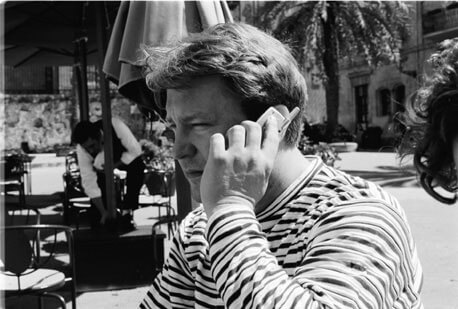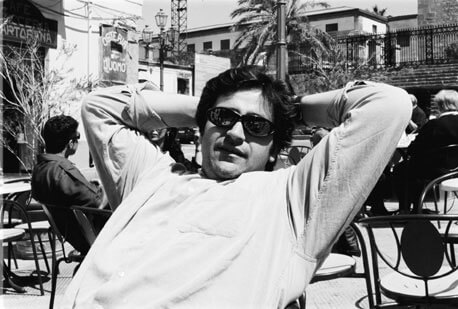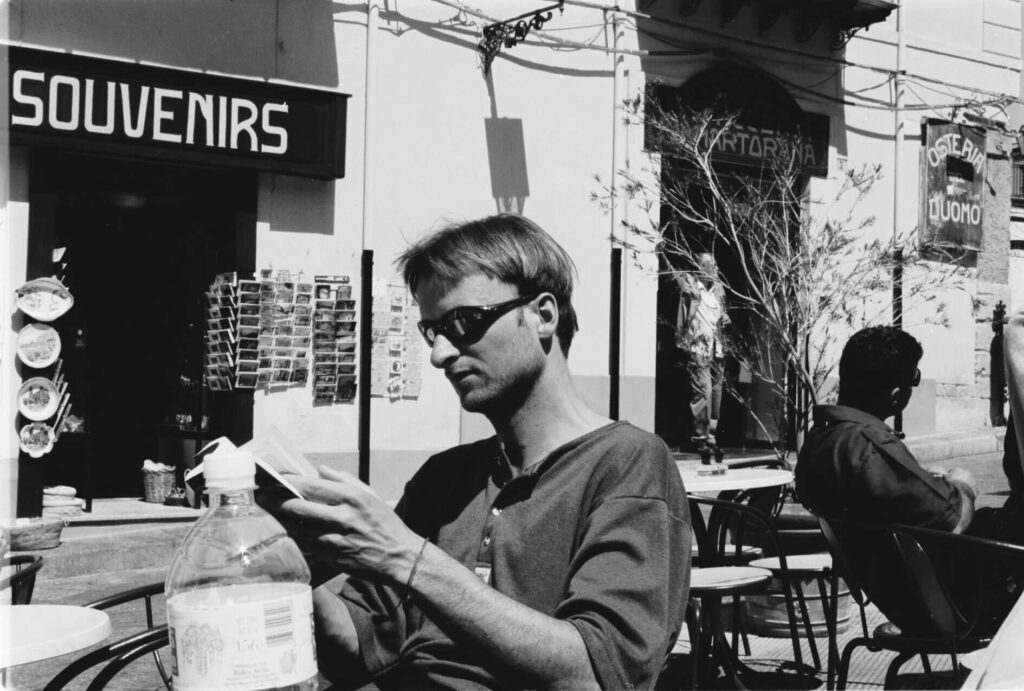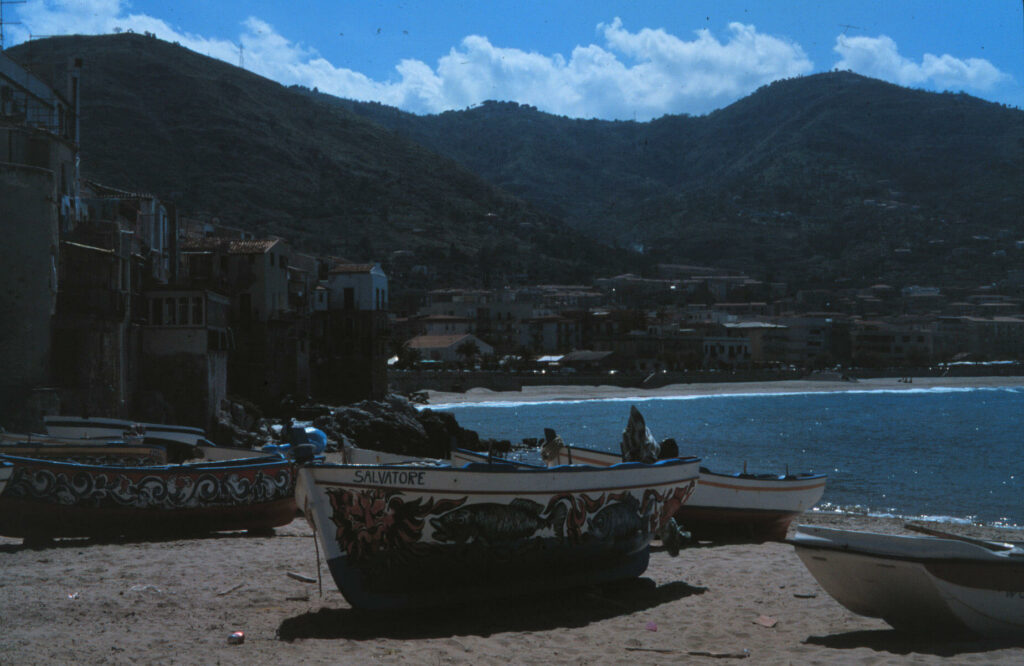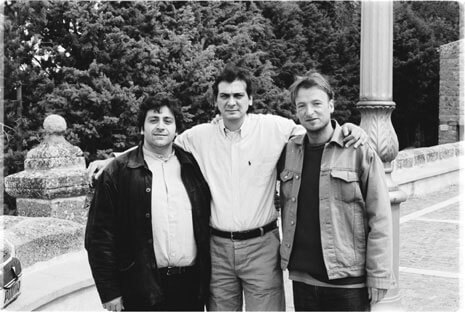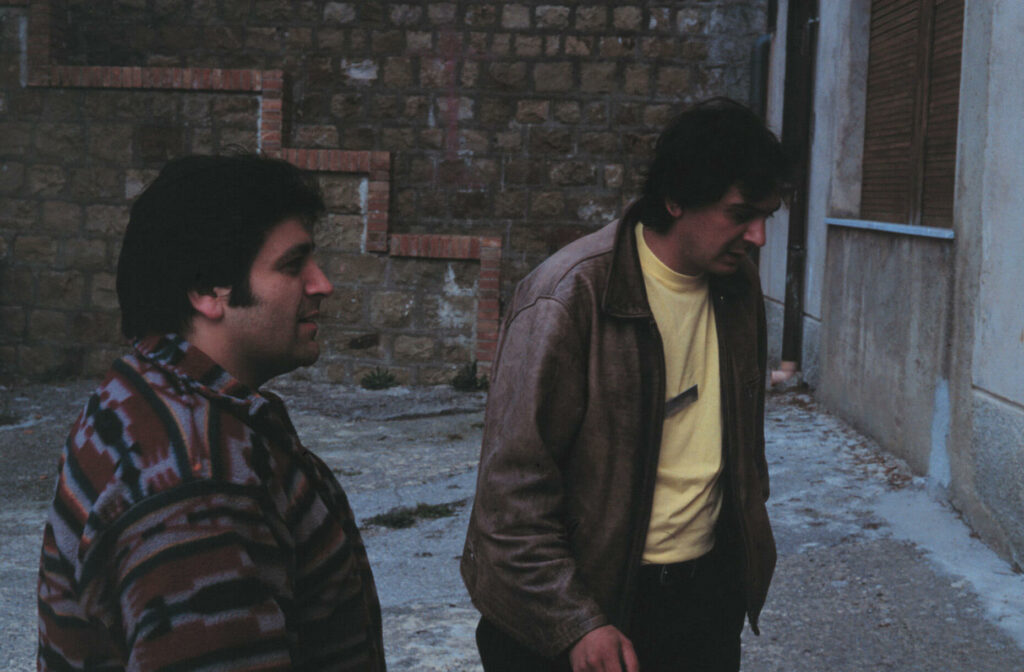The Second European Workshop on Celldeath
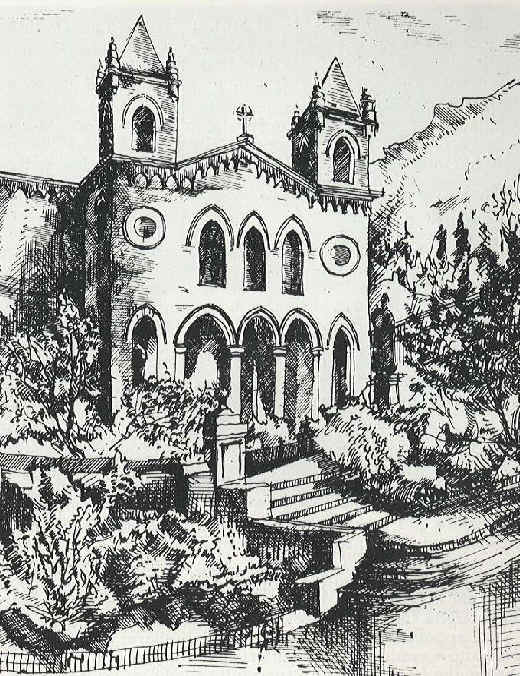
15:00-19:00 Registration in Gibilmanna Monastery
20.00 Dinner and Welcome Address in the Cathedral of Cefalu’
7:30-8:15 Breakfast
8:30-10:20 Session I: Caspases (S. Srinivasula/R. De Maria)
Eric Eldering: BCR induced apoptosis is initiated by a zVAD insensitive protease which is under direct control of CD40.
Srinivasa Srinivasula: A regulatory role for Apaf 1 in caspase 9 function.
Colin Adrain: DRADD is a nuclear-localized death domain adaptor protein that binds caspase-9 and promotes apoptosis.
Astrid Danen-van Oorschot: Apoptin induces apoptosis specifically in human tumor cells: studies on its mechanism.
Geert Van Loo: Two cell death pathways leading to necrosis and apoptosis: differential role of caspases and mitochondria.
Jean-François Eléouët: The viral nucleocapside protein of the transmissible gastroenteritis coronavirus, TGEV, is a target for caspase 6 and 7.
10:20-10:50 Coffee break
10:50-13:00 Session II: Mitochondria and cytotoxic drugs (R. Johnstone/V. Sutton)
Ricky Johnstone: Regulation of caspase-dependent but not caspase-independent cell death by the multidrug resistance protein, P-glycoprotein.
Paola Costantini: Oxidation of a critical Thiol residue of the adenine nucleotide translocator enforces Bcl-2-independent permeability transition pore opening and apoptosis.
Cristina Muñoz-Pinedo: Biochemical differences in apoptosis induced by CD95 ligation or thymidilate-syntase inhibition.
Vivien Sutton: Granzyme B induced apoptosis is regulated by pro- and anti- apoptotic members of the Bcl-2 family.
Maria Rita Rippo: GD3 Ganglioside induces apoptosis via direct mithocondrial damage in a Bcl-2 controlled fashion.
Luigi Ravagnan: Two distinct pathways leading to nuclear apoptosis.
Anna Stepczynska: Differential role of caspase 8 and Bid cleavage during CD95- and anticancer drug induced caspase activation.
13:00-14:30 Lunch at conference site
14:30-15:45 Session III: Signaling (J.P. Medema/J. Borst)
Marjatta Rytömaa: Activation of the caspase cascade and the effect of Ras in detachment induced apoptosis.
Bryan Ballif: Regulation of cell survival by the MAPK-activated kinase, RSK1 and the phosphoinositide-dependent kinase, PDK1.
Daniela Barilá: A nuclear tyrosine phosphorylation circuit: c-Jun as an activator and substrate of c-Abl and JNK.
Antonio J. Vila-Coro: Chemokine receptor homo- and heterodimerization as a cellular mechanism to increase sensitivity and dynamic range of chemotaxis.
15:45-16:15 Coffee break
16:15-18:20 Session IV: Neurology (H. Mehmet/M. Leist)
Huseyin Mehmet: Fas/CD95/APO-1 can function as a death receptor for neuronal cells in vitro and in vivo and is upregulated following cerebral hypoxic-ischemic injury to the developing rat brain.
Marcel Leist: Differential effects of Bcl-2, caspase inhibition and PARP deletion on survival of intracerebral neuronal transplants.
Deana Demjen: Apoptosis contributes to neuronal lost following spinal cord trauma.
Ana Martin-Villalba: Synergistic inhibition of CD95 ligand and TNF attenuates brain damage in stroke.
Christiane Volbracht: ATP-control of neuronal apoptosis triggered by microtubule breakdown.
Vincenzo De Laurenzi: Functional studies on p73.
Luciano D’Adamio: Cleavage of Alzheimer’s b-amyloid precursor protein by g-secretase liberates an intracellular peptide that promotes apoptosis.
7:30-8:15 Breakfast
8:30-10:00 Session V: TRAIL Signaling (H. Walczak/J. Borst)
Henning Walczak: TRAIL-induced apoptosis is not inhibited by overexpression of Bcl-2 or Bcl-XL.
Juthathip Mongkolsapaya: Structure of the apoptosis inducing TRAIL-DR5 complex.
Martin Sprick: Caspase-8 and FADD/Mort1 are necessary components of the TRAIL-R2 death-inducing signalling complex (DISC).
Marion MacFarlane: Active effector caspases and cleaved cytokeratins are sequestered into cytoplasmic inclusions following TRAIL-induced apoptosis.
10:00-10:30 Coffee break
10:30-11:25 Session VI: TRAIL Biology (H. Walczak/M. Hahne)
Markus Weigand: Differential regulation of the CD95- and TRAIL-system on human peripheral T-lymphocytes.
Katharina Simon: Involvement of TRAIL receptor 2 in thymic negative selection.
Martin Leverkus: Regulation of TRAIL sensitivity in primary and transformed human keratinocytes.
11.25-13.00 Session VII: Clinical aspects of apoptosis (G. Condorelli/G. Stassi)
Giorgio Stassi: FLIP (FLAME-1/I-FLICE) and Bcl-XL protect thyrocytes from Fas-mediated destruction in Graves’ disease.
Gianluigi Condorelli: Apoptotic pathways in cardiomyocytes.
Thomas Brunner: Cyclosporin A-insensitive CD95 (Fas) ligand expression in the pathogenesis of acute intestinal Graft-versus-Host Disease.
Corina Lorz: Proapoptotic FasL is present in normal kidney tubules and inflammed glomeruli.
Marcello Pinti: Quantitative analysis of CD95 and CD95L mRNA expression in HIV infection.
13:00-14:30 Lunch at conference site
20:00 Dinner at the conference site
7:30-8:15 Breakfast
8:30-10:20 Session VIII: Transcriptional regulation of apoptosis (E. Baehrecke/A. Sala)
Eric Baehrecke: Steroid regulation of programmed cell death during Drosophila development.
Eva Szegezdi: Natural retinoic acids inhibit the activation induced T-cell death by modifying the function of Nur77.
Arturo Sala: Apolipoprotein J (Clusterin), a protein required for neuroblastoma cell survival, is directly regulated by the B-myb oncoprotein and expressed in advanced disease stages.
Ann Zeuner: Interferon regulatory factor-1 and -2 regulate constitutive and interferon-gamma-induced expression of multiple caspases in monocytic cells.
Adriana Eramo: Caspase mediated TAL-1 cleavage is required for erythroid cell apoptosis.
Christopher Stroh: Novel approach for enhancing the susceptibility of cancer cells to chemotherapeutic drug induced apoptosis: inhibition of NF-kB through intracellular delivery of IkB by HSV-1 structural protein VP22.
10:20-10:50 Coffee break
10:50-13:00 Session IX: Anti- and pro-apoptotic mechanisms (M. Jäättelä/T. Brunner)
Marco vanEijk: Follicular dendritic cells provide GC B cells with two anti-apoptotic signals.
LorettaTuosto: Engagement of CD4 before TCR triggering regulates both Bax- and Fas-mediated apoptosis.
Wanjun Chen: Requirement for transforming growth factor-beta-1 (TGF-b1) in controlling T cell apoptosis.
Stefanie Tran: MAP Kinase-mediated regulation of FAS, TNF and TRAIL receptor-induced apoptosis in HELA cells.
Francesca Bernassola: Charachterization of TGase-2 KO mice.
Nils Holler: FLIP activates NF-kB and ERK signaling pathways and can divert Fas ligand-induced death signals to survival.
Frank Neumann: The pro- and anti- apoptotic properties of cFLIP short depend upon its intracellular compartmentalisation.
13:00-14:30 Lunch at conference site
14:30-15:45 Session X: Heat Shock Proteins (M. Jäättelä/V. De Laurenzi)
Marja Jäättelä: Hsp70 protects tumour cells from cell death by at least two distinct mechanisms.
Fabio Martinon: Interaction of SODD with Hsp70/Hsc70 via the BAG domain.
Jesper Nylandsted: Inhibition of Hsp70 synthesis leads to apoptotic death of breast cancer cells.
15:45-16:15 Coffee break
16:15-18.20 Session XI: Apoptosis and tumors (M. Hahne/J.P. Medema)
Jan Paul Medema: Immune escape of tumors in vivo.
Jennifer Rohn: The role of a tumor-specific environment in the apoptotic activity of Apoptin.
Larry Denner: Engagement of the Apoptotic Machinery in Prostate Cancer.
Lucy Peltenburg: Molecular analysis of radiation-induced apoptosis in paraffin-embedded tumor and normal tissue of rectal cancer patients.
Luisa Granziero: Modulation of Survivin expression by CD40L in B-chronic lymphocytic leukemia (B-CLL).
Valerie Zimmermann: Protection against an non-immunogenic melanoma by vaccination with apoptotic tumor cells coupled with TNF-a.
18:20 Concluding remarks
19:00 Last Evening Party at the conference site
7:30-9:00 Breakfast
Departure

